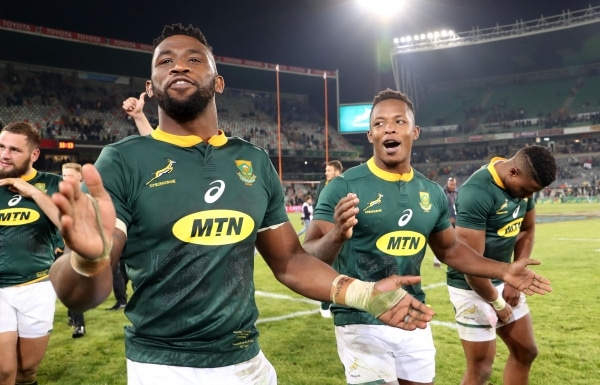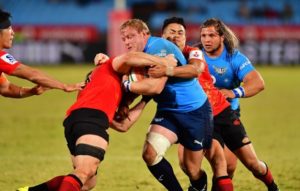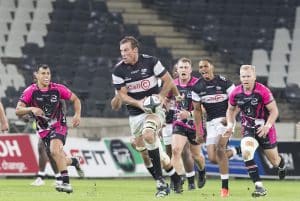SA Rugby president Mark Alexander believes Springbok coach Rassie Erasmus has done a ‘great job’ on the transformation front this year. CRAIG LEWIS reports.
Having been set a 45% representation target for players of colour over the course of the 2018 season (it will rise to 50% next year), the Springboks have sought to embrace the manner in which they go about tackling the subject of transformation.
Erasmus has made no secret of the fact that achieving transformation targets is one of his key agendas. In the first Test of the year, the Bok coach backed that up by selecting seven players of colour in the starting XV for the first Test against England, and another three on the bench (10 out of 23 for 43%).
Although those sort of numbers were not always maintained throughout the season – particularly as the injury toll rose – Alexander said SA Rugby was very satisfied with the strides being made when it comes to transformation.
‘We always get blamed for not doing enough, but we will get there. Rassie has done a great job as far as transformation is concerned, and I think we’ve seen the most [black] players ever in the Springbok team, and we also have a black captain [in Siya Kolisi].
‘This is long overdue, and it [the number target] is something that must not come from transformation, but naturally. These players are good enough to be there, those that we’ve seen in the team, they are not quotas, they are there because they deserve to be there, they are quality players. Nobody can name one of the [black] players who have played for the Boks this year and say that they are there because they are quotas.’
Chatting to the media at the launch of the Black Rugby History A to Z digital exhibit at the Springbok Experience rugby museum in Cape Town on Thursday, Alexander insisted that more could still be done.
‘How are you going to transform when the bulk of our public schools do not play any form of sport? The barriers are difficult, and in certain areas you have to take talented kids from previously disadvantaged areas and put them into a rugby school because there is a gym there, and there is proper nutrition. All of those things count towards becoming a professional rugby player.
‘We see in the Eastern Cape, for example, all of those kids know how to play rugby and have a flair for the game, but some of them are not physically capable. Do you know why? Because of socio-economic issues, they don’t eat well, they don’t have access to gyms, it’s simple things like that. You can run for days on the road, but for rugby, you need strength.’
Back in September, the Congress of South African Trade Unions accused Erasmus of giving preferential treatment to white players when he picked only four players of colour in the Bok starting lineup for the Rugby Championship match against the All Blacks in Wellington.
However, Alexander suggested that context was required, and highlighted the need to begin limiting the amount of game time in the interests of player welfare.
‘You only needed to go to the rehab clinic to see why [that selection was the case], there were so many black players who were injured. Guys are being overplayed, and in general we play too much rugby in this country. We need to limit the amount of games we play, to give guys a recovery period.
‘That’s why you are seeing someone like Lukhanyo Am missing the end-of-year tour, Trevor Nyakane was also injured this year, and the list goes on. There’s just way too much rugby.’
Photo: Muzi Ntombela/BackpagePix





